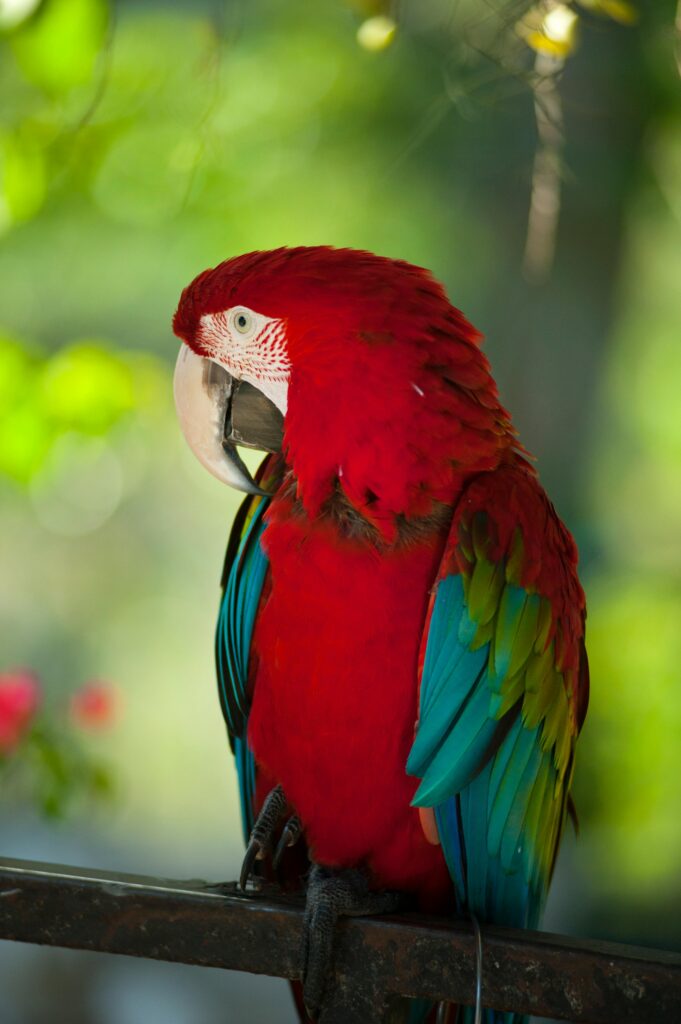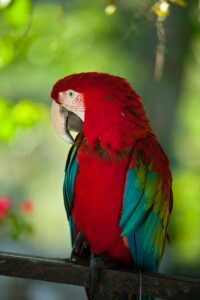Exotic Pets: The Pros and Cons of Owning Unusual Animals
Pros and Cons of Owning Exotic Pets:Owning an exotic pet can be a thrilling and one-of-a-kind experience. These animals, which include everything from reptiles and birds to small mammals like sugar gliders and ferrets, often offer companionship in ways that traditional pets, such as cats and dogs, may not. Their unique behaviors, appearances, and care requirements make them fascinating and engaging companions. However, keeping an exotic pet comes with its own set of challenges and responsibilities that should not be overlooked.
Caring for an exotic pet requires special attention to their dietary needs, habitat, and overall health. Unlike more common pets, exotic animals may need specific enclosures, temperature regulation, and even humidity control to thrive. Access to specialized veterinary care can also be more limited and costly. On the flip side, the bond you develop with an exotic pet can be deeply rewarding, as you get to witness their unique personalities unfold in ways that are both surprising and delightful.
Before deciding to bring an exotic animal into your home, it is essential to thoroughly research the species you are interested in. Understanding the time, effort, and resources required for their proper care is crucial. Not only should you weigh the pros and cons, but you should also consider legal regulations, ethical concerns, and your ability to meet their long-term needs. By doing so, you’ll ensure that both you and your exotic pet can live a happy, healthy life together.
Pros and Cons of Owning Exotic Pets: What Is Considered an Exotic Pet?
TOP 5 EXOTIC PET THAT YOU CAN OWN
Exotic pets are generally defined as animals that are not typically domesticated or commonly found in most households. These creatures encompass a broad range of species, each with unique traits and care requirements. Some of the more popular exotic pets include reptiles, such as snakes, lizards, and turtles, as well as birds like parrots, cockatoos, and macaws. Amphibians, such as frogs, newts, and salamanders, are also common in the exotic pet world, along with various rodents like chinchillas, hedgehogs, and sugar gliders. Additionally, some people may choose to keep more wild or unconventional animals, such as servals, fennec foxes, or even primates, though these require extensive care and attention.
What sets exotic pets apart from traditional domesticated animals is the complexity of their needs. Exotic pets often require highly specific habitats that mimic their natural environments, whether that be controlled humidity levels, precise temperatures, or elaborate enclosures with hiding spaces and climbing opportunities. Their diets also tend to be more specialized, sometimes consisting of live insects, fresh vegetation, or even carefully formulated supplements.
In addition to their unique care requirements, the legal status of exotic pets can vary significantly by location. Some areas may have restrictions or outright bans on owning certain species due to concerns over conservation, public safety, or animal welfare. It’s important for prospective exotic pet owners to familiarize themselves with local regulations before bringing an exotic animal into their home, as penalties for illegal ownership can be severe.
Caring for an exotic pet is a rewarding but often demanding endeavor. These animals offer something different from the companionship of dogs or cats, but they also require a deeper commitment to understanding their natural behaviors, health needs, and legal standing.
The Pros of Owning Exotic Pets
1. Unique Companionship
Owning an exotic pet provides a chance to form a truly unique and special connection with an animal that is anything but ordinary. For many, there is immense joy in nurturing a creature that differs greatly from the usual household pets like cats or dogs. Whether it’s the vibrant colors and playful personality of a parrot, the calm and mysterious demeanor of a snake, or the charming quirkiness of a sugar glider, exotic pets offer a captivating companionship that feels fresh and distinct.
The allure of exotic pets often lies in their distinct characteristics and behaviors. From the striking appearance of a brightly colored chameleon changing hues to the soothing sight of an elegant snake gracefully moving through its enclosure, these animals bring a sense of wonder and fascination to everyday life. The care and attention required to meet their unique needs can deepen the bond between owner and pet, creating a more engaged and enriching relationship.
For those who appreciate the extraordinary, exotic pets can offer companionship that is both rewarding and fulfilling. Each day brings new discoveries, whether it’s watching your pet thrive in its custom habitat or learning more about its natural behaviors. While these animals may require more effort in terms of care and understanding, the relationship you build with them can be incredibly gratifying, offering an experience that goes beyond the typical pet-owner dynamic.
2. Low Allergens
Many people struggle with allergies to common household pets like cats and dogs, often due to the fur and dander that these animals shed. For those affected by these allergies, owning a traditional pet can be difficult, if not impossible. However, exotic pets offer an appealing alternative. Reptiles, amphibians, and certain birds tend to be hypoallergenic, as they do not shed fur or produce dander in the same way that mammals do, significantly reducing the risk of triggering allergic reactions.
Reptiles such as snakes, lizards, and turtles, for example, have scales rather than fur, making them a safer option for individuals with allergies. Amphibians like frogs and salamanders, with their smooth, moist skin, are similarly allergy-friendly. Even some species of birds, particularly those that produce minimal dust or dander, can be suitable for people with sensitivities. This makes exotic pets a viable and enjoyable choice for allergy sufferers who still want the companionship of an animal.
Additionally, these pets can offer all the benefits of companionship without the constant shedding or allergen buildup common in households with furry animals. The reduced need for cleaning pet hair and dander means a healthier living environment for those with allergies, while still allowing the pet owner to experience the joys of bonding with a unique and fascinating creature.
3. Low Maintenance (for Some Species)
Contrary to popular belief, some exotic pets can actually require less upkeep than traditional pets like dogs or cats. For example, reptiles such as snakes and turtles don’t need to be walked daily or groomed regularly, and their dietary needs are often straightforward and relatively inexpensive to manage. However, it’s important to note that this low-maintenance care applies only to certain species. Other exotic pets may have more demanding needs that require significant time, attention, and resources to meet.
4. Educational Value
Owning an exotic pet can be an incredibly enriching and educational experience for both adults and children. Caring for these unique animals often involves delving into the specifics of their natural habitats, climates, dietary needs, and behaviors. This hands-on learning process can enhance your knowledge of biology, ecology, and the diverse ecosystems that these creatures come from.
By understanding the intricate care requirements of an exotic pet, such as providing the right humidity levels for a tropical reptile or the proper nesting conditions for a bird, you’ll gain a deeper appreciation for the complexities of the animal kingdom. This experience not only fosters a connection with your pet but also expands your awareness of wildlife conservation and environmental stewardship.
For children, having an exotic pet can be an engaging way to introduce concepts such as animal adaptation, evolution, and the importance of preserving natural habitats. It encourages curiosity and critical thinking while nurturing a sense of responsibility and empathy for creatures that are often misunderstood or overlooked. This broader perspective on wildlife can inspire a lifelong interest in animals, nature, and science.
5. Smaller Space Requirements
Many exotic pets, such as reptiles, fish, and small mammals, can thrive in relatively small living spaces, making them ideal companions for people living in apartments or homes with limited space. Unlike larger pets that require room to roam and play, exotic animals often do well in contained environments like terrariums, aquariums, or enclosures designed specifically for their species. With careful planning and proper setup, these habitats can provide a comfortable and enriching environment for your pet without taking up much room in your home.
For example, a well-designed terrarium for a gecko or snake, or a thoughtfully arranged aquarium for fish or amphibians, can serve as both a functional and visually appealing addition to your living space. These setups can be compact while still meeting your pet’s specific needs in terms of temperature, lighting, and hiding places. Small mammals like hamsters or hedgehogs also require relatively little space, as their enclosures can fit comfortably in a corner or on a shelf.
This space-saving aspect of exotic pets makes them an excellent option for people who may not have the room for larger animals like dogs or cats but still want the joy of pet ownership. Additionally, maintaining a smaller habitat is often easier to manage and clean, contributing to the convenience of keeping an exotic pet in a smaller living space.
The Cons of Owning Exotic Pets
1. Complex Care Requirements
The biggest challenge with exotic pets is that they often have specialized care needs. This could involve specific diets, habitats, lighting, humidity, and temperature conditions. For example, reptiles typically require carefully controlled environments with UV lighting, temperature gradients, and specific diets. Birds may need plenty of mental stimulation and a large aviary. Without proper care, these animals can become stressed or ill.
2. Cost
Exotic pets can be expensive to own. Initial setup costs for enclosures, heating, lighting, and other equipment can be significant. Additionally, their specialized diets, regular veterinary care, and other ongoing needs can add up over time. For example, large reptiles may need frequent feeding of live prey, and certain birds might require expensive, high-quality food.
3. Limited Veterinary Care
Finding a veterinarian who specializes in exotic pets can be challenging. Not all veterinarians are trained or equipped to handle the unique medical needs of exotic animals. In some cases, you may need to travel long distances to find a vet who can provide appropriate care for your pet.
4. Legal and Ethical Concerns
In some areas, owning certain exotic pets may be illegal or heavily regulated. For example, many states in the U.S. have laws that restrict ownership of wild animals or certain reptiles. Before acquiring an exotic pet, it’s essential to research the legal status of the animal in your area. Additionally, there are ethical considerations surrounding the ownership of exotic animals, particularly when it comes to endangered species or animals that are captured from the wild.
5. Potential for Danger
Some exotic pets can be dangerous if not handled properly. Large snakes, certain lizards, and wild mammals can pose risks to humans if they feel threatened or are not appropriately cared for. It’s essential to have a thorough understanding of the species you are considering and be prepared to manage the risks involved.
Pros and Cons of Owning Exotic Pets: Common Types of Exotic Pets and Their Specific Care Needs
1. Reptiles (Snakes, Lizards, Turtles)
Reptiles are a popular choice for exotic pet owners because they are often low-maintenance, quiet, and do not need constant attention. However, they require very specific environments, including temperature control, humidity, and specialized lighting to mimic their natural habitats. For example, snakes may need an enclosure with a heat gradient, while turtles often require both aquatic and dry areas.
2. Birds (Parrots, Cockatoos, Canaries)
Birds are intelligent and social creatures, but they can be quite demanding in terms of care. Parrots and cockatoos, for instance, need daily mental stimulation, a varied diet, and plenty of space to fly. Birds also need regular interaction with their owners to prevent boredom and behavioral issues, such as feather plucking.
3. Small Mammals (Chinchillas, Sugar Gliders, Hedgehogs)
Small mammals like chinchillas and sugar gliders can make wonderful pets but require specific care. Chinchillas need dust baths to keep their fur clean, while sugar gliders require a diet rich in fruits, vegetables, and protein. Hedgehogs are nocturnal, which means their activity will peak during the night, making them a better fit for night owls.
4. Amphibians (Frogs, Salamanders, Axolotls)
Amphibians are fascinating pets that require specific humidity and temperature conditions. For instance, dart frogs need a misted terrarium with plenty of moisture, while axolotls require cool, clean water. Amphibians are sensitive to environmental changes, so maintaining their habitat is crucial to their health.
How to Choose the Right Exotic Pet for You
Pros and Cons of Owning Exotic Pets: Choosing the right exotic pet involves careful consideration of your lifestyle, experience, and ability to meet the animal’s specific needs. Ask yourself the following questions:
- How much time can I dedicate to my pet each day?
- Do I have the space to create a suitable habitat for the animal?
- Am I willing to invest in the necessary equipment, food, and veterinary care?
- Is the animal legal to own in my area?
Research is key. Ensure that you fully understand the care requirements of the animal you are considering and are prepared to meet them for the pet’s entire lifespan.
Pros and Cons of Owning Exotic Pets: The Ethical Considerations of Owning Exotic Pets
Before committing to an exotic pet, it’s essential to consider the ethical implications of owning such animals. Many exotic pets are sourced from the wild, which can have a detrimental effect on their populations and ecosystems. It’s critical to choose a pet that has been bred in captivity and not taken from the wild.
Furthermore, some animals, especially large reptiles and birds, have complex needs that can be difficult to meet in a home environment. These animals may suffer from stress, anxiety, or health problems if they are not properly cared for.
Supporting responsible breeding practices and understanding the natural behaviors and needs of your exotic pet will help ensure that your pet lives a happy, healthy life.
Final Thoughts
Pros and Cons of Owning Exotic Pets: Owning an exotic pet can be a rewarding and fulfilling experience, but it requires careful thought and preparation. These animals are unique and fascinating, but they also come with specific challenges that must be addressed to ensure their health and well-being.
If you’re considering adding an exotic animal to your family, do your homework, consult with professionals, and make sure you’re ready to meet the animal’s needs. With the right care, exotic pets can thrive and become a cherished part of your life.
Pros and Cons of Owning Exotic Pets: Questions and Answers
1. What is the most popular exotic pet?
Answer: Some of the most popular exotic pets include reptiles like bearded dragons, birds like parrots, and small mammals like chinchillas and hedgehogs. Each of these animals has specific care requirements that owners must be prepared to meet.
2. Are exotic pets legal to own?
Answer: The legality of owning an exotic pet varies by location and species. Many countries and states have regulations on which animals can be kept as pets. Always check local laws before acquiring an exotic pet.
3. Do exotic pets require special diets?
Answer: Yes, most exotic pets require specialized diets that mimic what they would eat in the wild. For example, reptiles may need live prey, birds require a varied diet of seeds and fruits, and small mammals often need specific types of hay or pellets.
4. Are exotic pets dangerous?
Answer: Some exotic pets can be dangerous if not handled properly. Large reptiles, wild mammals, and certain birds can pose risks to humans if they feel threatened or are mishandled. It’s essential to fully understand the risks before bringing one into your home.
5. How much does it cost to care for an exotic pet?
Answer: The cost of caring for an exotic pet varies depending on the species. Initial setup costs for enclosures, heating, and lighting can be high, and ongoing expenses such as food, supplements, and veterinary care should be considered.
References
- American Veterinary Medical Association (AVMA)
- National Geographic
- PetMD
- World Animal Protection
- RSPCA
Pros and Cons of Owning Exotic Pets: This article provides an overview of the pros and cons of owning exotic pets, offering insights and advice for potential owners to make informed decisions. With proper care and understanding, exotic pets can live fulfilling lives, adding a unique dynamic to your home.
Thanks for reading and have a great day!
please post your thoughts in the comments section if you have any.please feel free to share!



